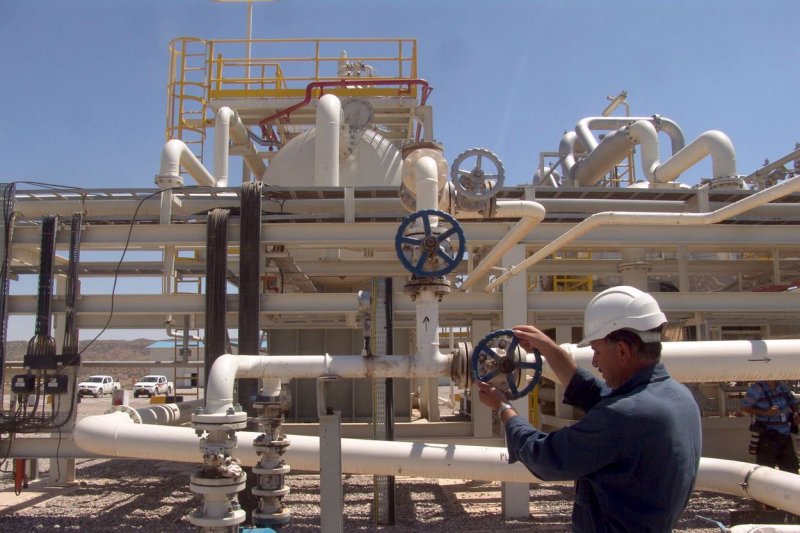1 of 3 | Genel Energy, which has a working interest in the Tawke oil field, said it has begun to halt production after an international court decision that tacitly limits crude oil exports through networks in Turkey. File Photo by Kamal Akrayi/EPA-EFE
March 29 (UPI) -- Major energy companies working in northern Iraq said Wednesday they shut down production due to an international court decision that tacitly limits crude oil exports through networks in Turkey.
Norwegian energy company DNO said it started the process of shutting down operations at oil fields in the Kurdish north of Iraq.
DNO earlier this week was instructed by the semi-autonomous Kurdistan Regional Government to stop deliveries to a pipeline running to the Turkish port of Ceyhan.
The order followed "an arbitration ruling in favor of Iraq against Turkey and its state-owned pipeline operator BOTAS for transporting Kurdish oil without prior approval from Baghdad," the company explained.
The pipeline to Ceyhan has the capacity to carry around 500,000 barrels of oil per day, with most of that in the form of Kurdish oil. DNO said any oil still flowing would go to storage tanks, but capacity there is limited.
"It is unfortunate it has come to this given the likely impact of a continuing supply disruption on oil prices and at a fragile time in global financial markets," said DNO's Executive Chairman Bijan Mossavar-Rahmani.
Genel Energy has a working interest in the Tawke and Peshkabir fields alongside DNO. That company added that production at Peshakbir was halted Tuesday evening local time and plans were underway to defer any regular maintenance.
"Tawke production shutdown has started but will take an additional day or so given the much larger numbers of wells spread across some 10 kilometers (6 miles)," Genel stated.
Both fields combined for a production average of about 107,000 barrels of oil per day, a drop in the bucket relative to Iraq's full potential, though the outage was in part fueling a rally in crude oil prices.
The central government in Baghdad and the KRG have been at loggerheads for years. Iraq's central government filed a case at the International Chamber of Commerce in 2014, arguing Turkey was in violation of a 1973 bilateral agreement by allowing the KRG to send oil through the pipeline without Baghdad's consent.
The Kurdish government said last week the decision does not impact the relationship between the two governments. Delegates from all three governments are slated to discuss the issue during meetings in Baghdad.
Iraq is the second-largest oil producer among members of the Organization of the Petroleum Exporting Countries with production averaging around 4 million bpd.















